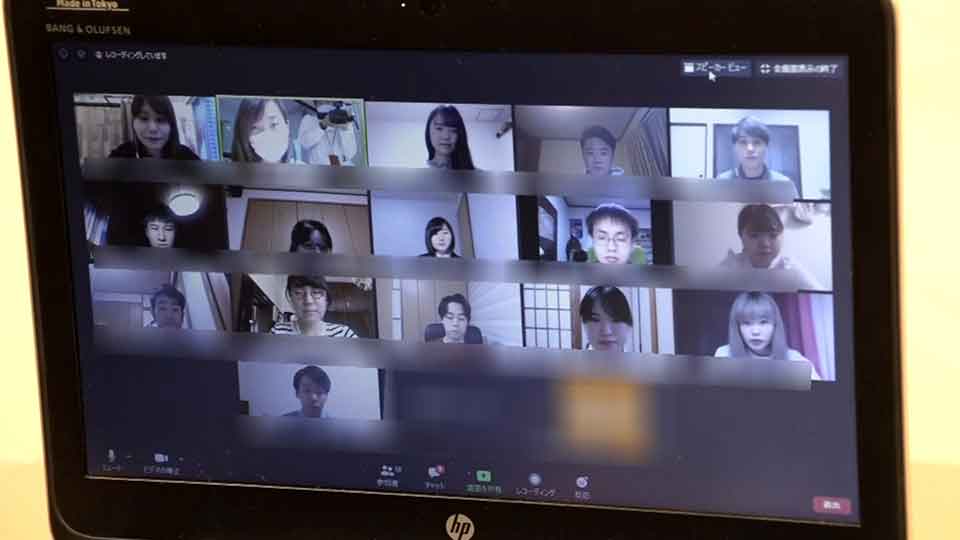Tokyo-based bag maker Tsuchiya-Kaban Seizosho hasn’t held any face-to-face recruitment sessions or job interviews since February. Instead, the company’s managers are doing the whole process remotely.
The company ran an online briefing session in late May for 16 candidates, and it attracted people from much further afield than their in-house sessions usually do. Most of the participants were from outside Tokyo. One was in Jordan, in the Middle East.
And location wasn’t the only break from the norm. Only one of the candidates decided to dress in the formal black suit that’s usually de rigeur for job-hunting in Japan. The others opted to dress casually.

The shift to online interviews has been a boon for job hunters in rural areas who would typically have to spend a great deal of time and money traveling.
Fukuoka Yuta, who studies in Gunma Prefecture, says he thinks people who go to university in the capital have an advantage most years because of their easy access to so many opportunities. “So, I’m happy it’s gone online,” he says.
Employers are embracing the change too. Nishijima Yuzo, personnel director with the bag maker, says most of their hires last year were people who lived in or near Tokyo. This year their recruits come from much further afield.
“At first I was a bit worried about using the internet to do all of our recruiting,” he says. “But I’ve found we can meet a larger variety of students, so it opens up new possibilities.”

A recent survey by career services firm Mynavi Corporation suggests these changes are widespread. It found that, as of late March, 41 percent of respondents had been interviewed online. A month later, after coronavirus infections spiked, that figure was 94 percent.

But not everyone is welcoming the new practices. Some students say it’s harder to get a sense of the firms that may employ them for decades to come.
Masubuchi Akari, a student in Tokyo, has interviewed with two companies since April. One of them asked her to record a three-minute video on a given theme.
“That’s nerve-racking, because I’ve never spoken on camera alone before,” she says. "And you can’t tell how they’re reading it.”
But she knows there’s no choice. Like her fellow job seekers, she has to adapt to this new recruiting style if she wants to land her dream job.

